My plan for today in Fiji was to get up early, go out fishing with the women of Nagigi to record a piece for BBC Radio, then join the rest of the Drew Crew for diving to sample more fish. It hasn’t quite worked out that way.
Last night the metal roof of the house we’re staying in seemed to constantly clatter as the rain came hammering down. It hadn’t stopped when I got up in the dark at 5.30. Unperturbed, Abigail and I got ready to go out fishing, borrowing an umbrella from our kind hosts. I was rather looking forward to recording a radio piece, wading through the shallow sea, with my headphones on, recorder and umbrella in hand. But it was not meant to be. As the sun rose we could absolutely see why. A howling gale was blowing across the lagoon, bothering the coconut palms, and whipping up angry looking waves. Funnily enough, the bad weather put off the fisher folk and no-one went out this morning.
And there’s no chance we’re making it out of the lagoon to dive today as we had planned. Instead, Josh, our colleague Wisea from WCS, and myself opted to try sampling seagrass sediments inside the lagoon.
As well as collecting fish on this trip, we also plan to bring back microbes. Colleagues back in the US asked us to sample seabed sediments so they can study the minute but vital organisms that inhabit the base of the marine food web.
After breakfast the wind had died down enough for us to figure we could at least grab a few handfuls of seabed without too much trouble. Oh how wrong we were.
Josh and I had gone through the sampling protocol on land: take clear plastic tube; shove it into the sediment, cap it off with a rubber bung to create a vacuum seal, then carefully slide the sediment core out, shoving another bung in the other end before it all comes pouring back out. Also get some intact seagrass blades, roots and all: easy. Perhaps.
By the time we motored out to the seagrass bed, the current had accelerated to a crazy rip. It took all our effort to stay put in one place. It felt like diving in a fast flowing river. Or, as Josh put it, it was like doing surgery while walking the wrong way on an escalator. We were only in four feet of water but within half an hour we had sucked through most of our tanks. By the end I was so exhausted I couldn’t make any headway at all (despite standing on the bottom) and was slowly getting pushed away from the boat, until Josh had to throw out a rope to rescue me.
To test the water speed, we threw in a Pelican case off the boat and timed it. To pass along the 6.25m boat took 8.6 seconds; that’s roughly 2/3 of a metre per second (definitely faster than we could swim in our scuba gear).
Getting the sediment samples was also not as straightforward as we had expected. I managed to get my tube into the sediment, stopper the top, and draw out a nice looking cylinder of layered sediment. Our main problem turned out to be that second bung. Every time I tried putting it in place, I disturbed the tube contents, shaking it all up and loosing the nicely stratified sand and sediment.
Luckily for Josh and I, Wisea was at hand. He had come with us to spear surgeon fish (we want to take samples of their guts for another colleague back home who is studying how these grazing fish slurp up microbes from the sediments). But the conditions were too much even for our chief fish hunter. Giving up in the fish, Wisea turned his hand to hunting sand and even without a scuba tank, he quickly returned to the boat with a neat tube of sediment. I was dead chuffed to come back with a single intact sample of seagrass. The rest was down to Wisea.
So, today may not have quite gone as planned but we did get our sediment samples back to shore and plunged into liquid nitrogen.
And the challenging conditions reminded us that tropical fieldwork isn’t all glorious tranquil turquoise lagoons. Fingers crossed the weather calms down tomorrow so we can get more work done.
#CUinFiji
Photos by me and Erin Eastwood
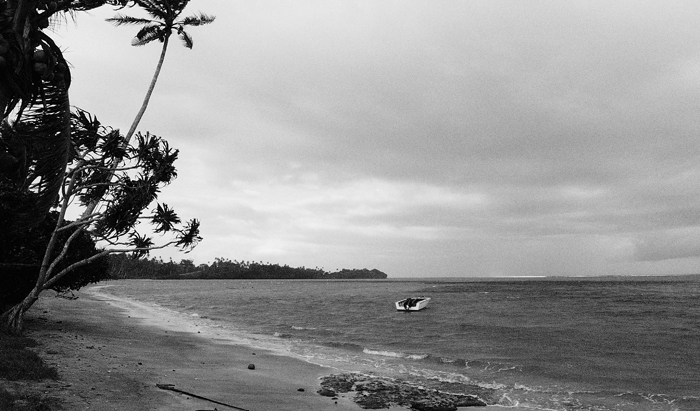
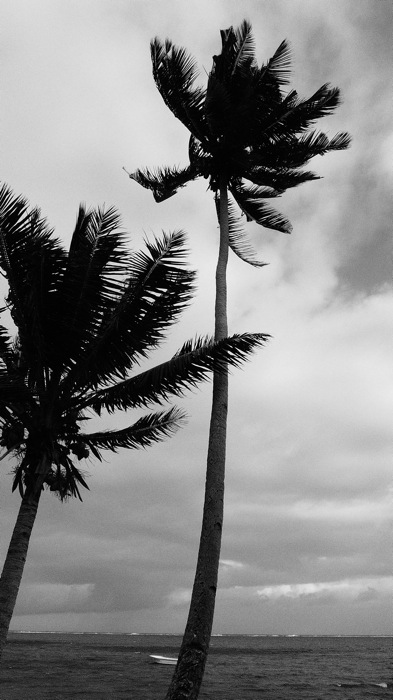

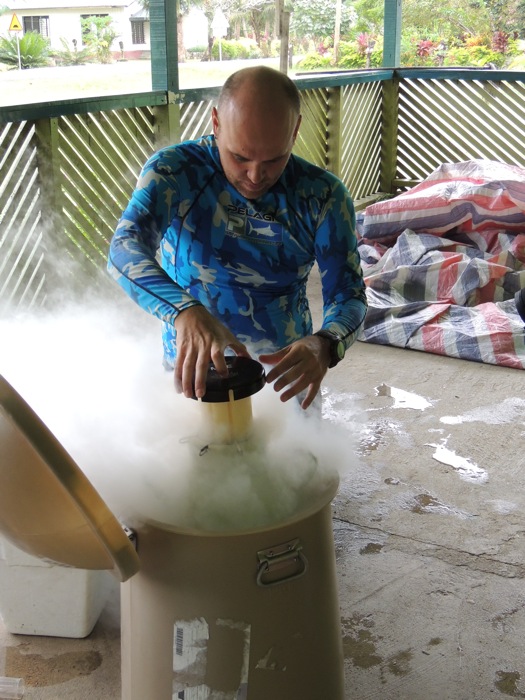
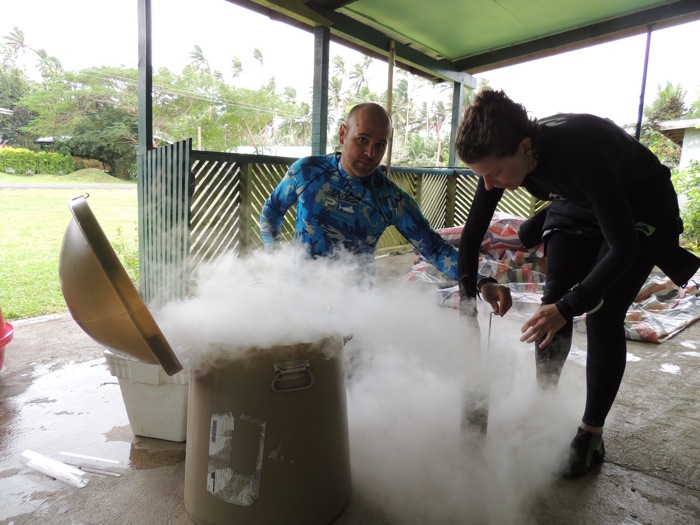
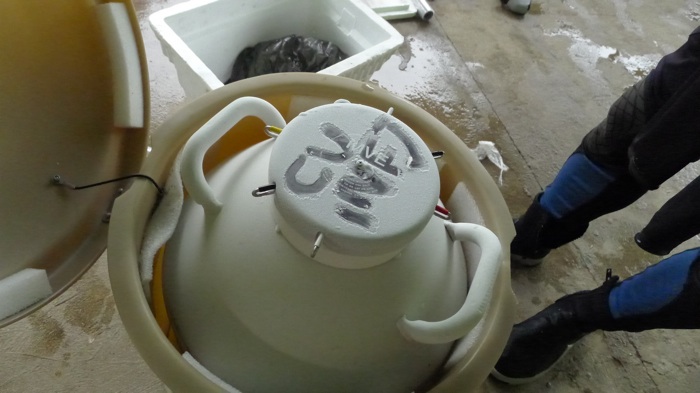
Leave a Reply